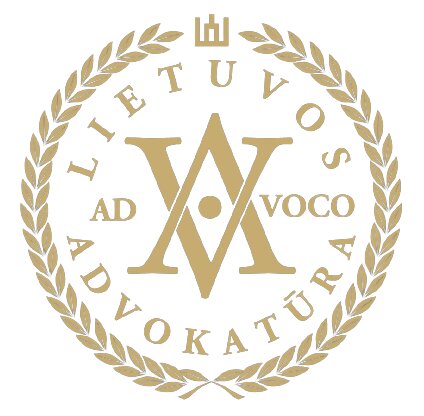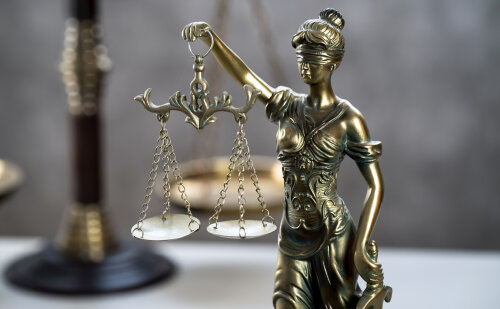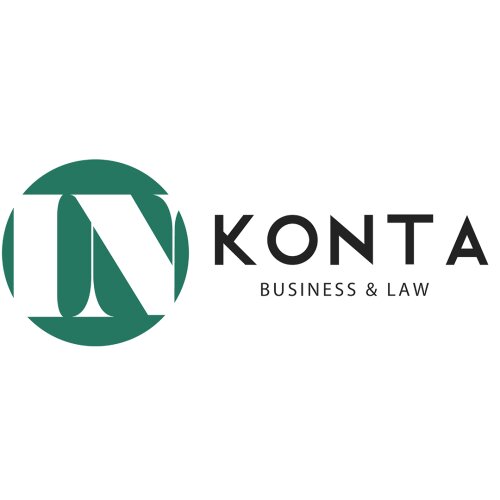Best Lawsuits & Disputes Lawyers in Vilnius
Share your needs with us, get contacted by law firms.
Free. Takes 2 min.
List of the best lawyers in Vilnius, Republic of Lithuania

About Lawsuits & Disputes Law in Vilnius, Republic of Lithuania
Lawsuits and disputes in Vilnius, and the broader Republic of Lithuania, involve a wide range of legal conflicts that can arise between individuals, companies, or government entities. The Lithuanian legal system, rooted in civil law tradition, provides a structured mechanism for resolving such disputes. Vilnius, being the capital and largest city, is the central hub where many legal disputes are litigated, offering a comprehensive legal framework and specialized courts to address various types of claims, from civil and commercial disputes to administrative and intellectual property disagreements.
Why You May Need a Lawyer
There are numerous situations where individuals or entities may require legal assistance regarding lawsuits and disputes in Vilnius. Here are some common scenarios:
- Contract disputes involving breach of contract terms or non-performance.
- Employment disputes related to unfair dismissal, discrimination, or wage issues.
- Property disputes, including landlord-tenant disagreements and real estate transactions.
- Family disputes, particularly involving divorce, custody, or inheritance matters.
- Commercial disputes arising from business dealings and partnerships.
- Intellectual property conflicts around trademarks, patents, or copyrights.
- Consumer rights issues, including product liability or service dissatisfaction.
Having a lawyer can help in navigating the complexities of the legal system, ensuring proper representation and protection of rights throughout the legal process.
Local Laws Overview
The Lithuanian legal system is based on a civil law framework, with laws codified and enacted by various branches of government. In the context of lawsuits and disputes, some key legal provisions include:
- The Lithuanian Civil Code, which governs obligations, contracts, and property rights.
- The Code of Civil Procedure, outlining the processes for civil litigation and dispute resolution.
- Employment laws that protect worker rights and regulate employer-employee relationships.
- Family law statutes managing issues of marriage, divorce, and child custody.
- Commercial legal regulations affecting business operations and transactions.
- Consumer protection laws and measures safeguarding the rights of consumers.
Understanding these laws is crucial to effectively navigate any legal disputes that might arise.
Frequently Asked Questions
What is the first step in initiating a lawsuit in Vilnius?
The first step is typically to file a complaint or claim at the appropriate court or through an alternative dispute resolution process, depending on the nature of the conflict.
How long do I have to file a lawsuit after a dispute arises?
The statute of limitations varies with the type of dispute. Generally, civil cases have a limitation period of three years, but it is advisable to consult a lawyer for specifics.
Can disputes be resolved outside of court?
Yes, many disputes can be settled through negotiation, mediation, or arbitration, which are often faster and less costly alternatives to court proceedings.
What qualifications should I look for in a lawyer for my case?
Look for lawyers with experience in the specific area of your dispute, good communication skills, and a track record of success in similar cases.
Can I represent myself in court?
While individuals can represent themselves, it is generally recommended to seek professional legal assistance to better navigate the legal complexities and increase the likelihood of a favorable outcome.
How much does it cost to hire a lawyer in Vilnius?
Legal fees vary depending on the complexity of the case, the lawyer's experience, and the time required. It is wise to discuss fees and payment options upfront with your lawyer.
What is the role of mediation in dispute resolution?
Mediation involves a neutral third party assisting the disputing parties to reach a mutually acceptable resolution. It is a confidential and voluntary process.
What can I expect during the court process?
The court process includes submitting necessary documents, attending hearings, presenting evidence, and receiving a judgment, which can then be appealed if necessary.
What is the appeals process like?
After a court judgment, parties can appeal to a higher court if errors in applying the law or significant procedural violations are identified. Appeals are bound by strict deadlines and procedural rules.
Are there specific courts for different types of disputes?
Yes, different courts in Lithuania handle specific matters. For instance, civil courts deal with civil and commercial disputes, and administrative courts handle administrative law cases.
Additional Resources
To further assist those in need of legal advice, the following resources can be invaluable:
- The Lithuanian Bar Association provides information and resources for finding a qualified lawyer.
- The Ministry of Justice of the Republic of Lithuania offers guidelines and basic legal information for citizens.
- Court websites provide access to services, procedures, and legal documents.
- Consumer rights protection institutions offer assistance in resolving disputes related to consumer issues.
Next Steps
If you require legal assistance, consider taking the following steps:
- Assess your situation and outline the specific legal assistance you need.
- Consult with a qualified lawyer to discuss your case and understand your legal options.
- Gather all relevant documentation and evidence related to your dispute.
- Explore alternative dispute resolution methods as a potential option before proceeding to litigation.
- Stay informed about your case and maintain regular communication with your legal representative.
With the proper guidance and preparation, you can navigate the legal system in Vilnius more effectively and work towards resolving your dispute.
Lawzana helps you find the best lawyers and law firms in Vilnius through a curated and pre-screened list of qualified legal professionals. Our platform offers rankings and detailed profiles of attorneys and law firms, allowing you to compare based on practice areas, including Lawsuits & Disputes, experience, and client feedback.
Each profile includes a description of the firm's areas of practice, client reviews, team members and partners, year of establishment, spoken languages, office locations, contact information, social media presence, and any published articles or resources. Most firms on our platform speak English and are experienced in both local and international legal matters.
Get a quote from top-rated law firms in Vilnius, Republic of Lithuania — quickly, securely, and without unnecessary hassle.
Disclaimer:
The information provided on this page is for general informational purposes only and does not constitute legal advice. While we strive to ensure the accuracy and relevance of the content, legal information may change over time, and interpretations of the law can vary. You should always consult with a qualified legal professional for advice specific to your situation.
We disclaim all liability for actions taken or not taken based on the content of this page. If you believe any information is incorrect or outdated, please contact us, and we will review and update it where appropriate.
Browse lawsuits & disputes law firms by service in Vilnius, Republic of Lithuania
Vilnius, Republic of Lithuania Attorneys in related practice areas.
















